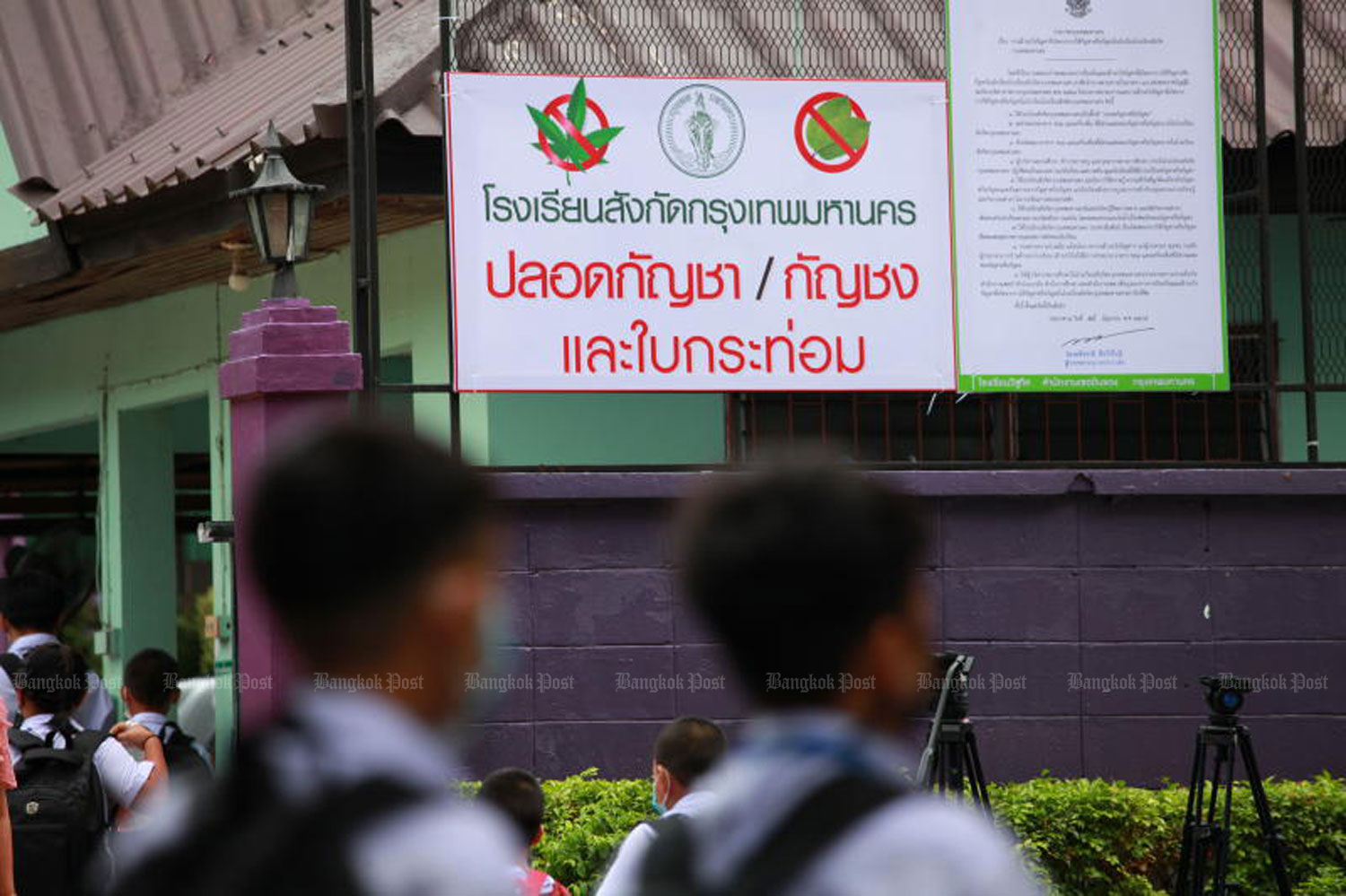Study reveals city’s drug-poverty links

More than 92,000 primary school-aged children are at risk of being exposed to narcotics, especially those who grow up in poor families with parents who take drugs, according to research by Mahidol University’s National Institute for Child and Family Development (NICFD).
The NICFD’s study, conducted on 1,309 families living in Bangkok slums who have at least one child up to the age of six years, showed that 6%, or 83 families, either have parents or guardians with a history of drug addiction, said the NICFD’s director-general, Dr Adisak Plitapolkarnpim.
The survey results said at least 154,800 impoverished families with no children or kids of primary school age may include parents or guardians with a history of drug addiction. It is estimated that such households could have 92,880 children in this age demographic.
For this study, the institute defined “poor families” as those that received a 600-baht-a-month subsidy for six years since their children were born.
The survey showed that parents from poor families are at least 2.4 times more likely to be exposed to narcotics and risk drug addiction than those that do not fit the criteria, while 60% tend to raise their kids using violence.
While gleaning such information about the subsidy is useful in planning how to rehabilitate the parents, Dr Adisak highlighted a problem in the form of siloed databases, meaning that the data about drug addiction and child support subsidies are often not linked.
The database containing details about who has received the subsidy includes 2.58 million people and shows that at least 16.32 billion baht was spent this year.
With these concerns in mind, Dr Adisak proposed that the next government prioritise investments in primary school-aged kids, such as psychological training to help them control their desire to experiment with drugs.
Panadda Thanasettakorn, a NICFD lecturer, said adults are responsible for building a suitable environment to nurture children in a non-violent way and shore up their emotional ability to withstand the desire to take narcotics.
Meanwhile, Dr Apichat Jitcharoen, NICFD deputy director-general, cited another study the department is conducting on the effects of cannabis on the foetus. He said this is a concern as more pregnant women are now smoking weed while carrying a child, especially in impoverished communities.

